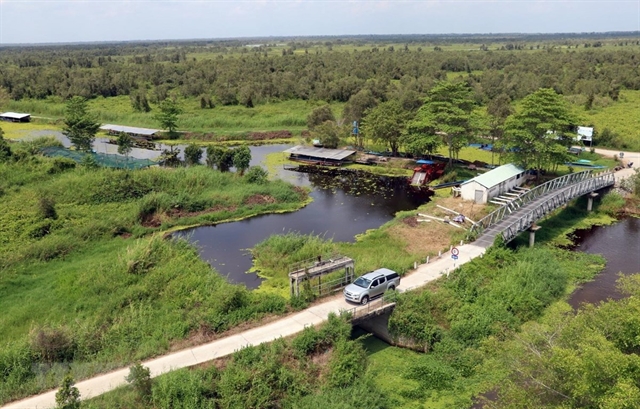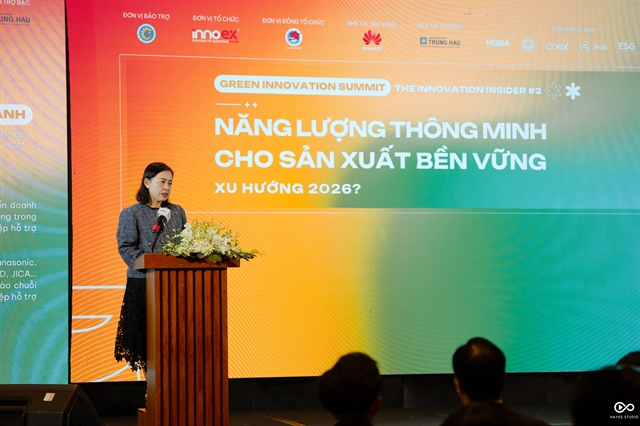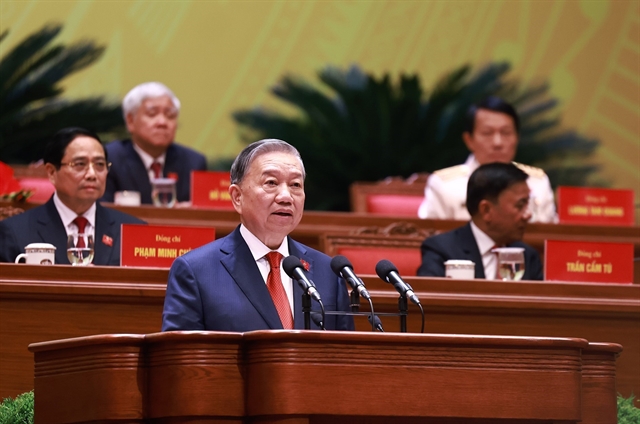 Opinion
Opinion


|
| A view of U MInh Thượng National Garden in the Cửu Long (Mekong) Delta Kiên Giang Province. — VNA/VNS Photo |
Nguyễn Hữu Thiện, talks to the newspaper Thanh Niên (Young People) on the eco-system in the Mekong Delta and threats from climate change.
How do you assess the importance of the Government’s Resolution 120 on Sustainable and Climate Resilient Development of the Mekong Delta in the regional development?
The Government’s Resolution 120 has great significance towards the development of the Mekong Delta.
The main messages from Resolution 120 are that development plans should be "harmonious" with nature, shifting mere agricultural practices to an agriculture economy, considering salt water, brackish water and fresh water as natural resources, developing an integrated development planning for the Mekong Delta region, including the coastal waters.
At present, the Mekong Delta faces three main challenges – the impact of climate change and rising sea levels; impacts of the Mekong hydropower network in the upstream areas and internal issues of the delta itself. However, the biggest issue the delta faces is rapid land subsidence which is considered to be much more serious than rising sea levels.
This subsidence is human-made, an inevitable result from the "brutal" treatment we had towards nature.
As we all know, rice cultivation and natural water had been priorities for the delta, which result in the many anti-flood projects and salt water intrusion plans across the region that severely disrupt the natural water cycle and hamper the natural process of self-cleansing.
On average, the Mekong Delta produces some 25 million tonnes of paddy and between 2-3 million tonnes of fertiliser used in agricultural activities, plus some half a million tonnes of pesticides.
Resolution 120 has been implemented for two years, but not many big changes have been witnessed in the region. Why is this?
Resolution 120 has strategic significance, so we can’t expect to have visible results in a short period of time. Over the past two years, the Government has taken active steps to speed up the implementation of Resolution 120. Despite the slow progress, what has been achieved is a solid foundation for more specific activities in the near future.
What challenges will the Mekong Delta face in the implementation of Resolution 120?
We all agree that the Resolution 120 is of great significance, yet not many, including regional Government officials and the public, could be said to have fully grasped its meaning. This is an obstacle in the course of implementing the resolution.
In short, the prevailing mindset is what stymie the progress.
First, is the idea of food safety. Most Vietnamese think that concept of food only refers to food self-sufficiency, that is having enough rice for the people to eat. In reality, each year the Mekong Delta produces some 25 million tonnes of paddy – yet half of it is for export.
It is projected that if rice cultivation continues for the next 20-25 years, and due to the intensive farming style, the land will become very poor, which pose a serious issue for the national programme of food security. So we now should think about nutrition security, in addition to mere quantity.
Second, Resolution 120 also aims at achieving sustainable development in all three aspects – economics, society and environment. In other words, a key objective of the Resolution is to reduce the intensive agriculture farming while increasing the quality of our agricultural products as well as their added value. In the meantime, we should also take actions to cut down the use of underground water – a key factor leading to land subsidence.
Third, in the course of writing a master development plan for the Mekong Delta, we have focused on three things, namely cultivated land, fresh water and agriculture production – particularly rice cultivation, while completely sidelining the river system and its natural connectivity with the sea.
And finally, there is a lack of a master plan for the development of the whole region – a key problem in the practice of intensive farming for the region due to the shortage of fresh water and the high level of water salinity.
How should the Mekong delta overcome all the limitations which you have mentioned above?
In my opinion, we should have more workshops and seminars to help people thoroughly understand Government Resolution 120.
The Ministry of Planning and Investment has been assigned to write a master plan for the development of the Mekong Delta. And with contributions from concerned Government agencies and foreign experts, we will have a realistic plan for the development of the Mekong Delta according to Government Resolution 120.
In addition, when we are really not sure what the future holds and our forecasting ability remains limited, then the most appropriate approach is to follow "no regrets principles," which is basically a set of rules and principles that advanced countries are employing to deal with the ever-changing situation in the context of climate change. These refer to giving priority to action plans that have the least risks of going wrong and possess a high degree of flexibility. — VNS




